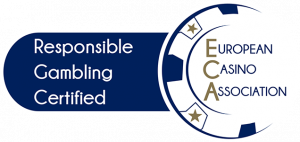Gambling ban
The gambling ban is a key instrument for player protection. It applies nationwide to licensed gambling in accordance with the State Treaty on Gambling and is recorded in the OASIS file, which covers all types of gambling. Licensed gaming arcades and online providers are also required to join the exclusion system.
Self-exclusion
Self-exclusion is unlimited and can be lifted upon application after the minimum exclusion period has expired. The minimum exclusion period is one year. A different minimum exclusion period may be agreed, which may be shorter (at least three months) or longer than one year. After the minimum exclusion period has expired, an application to lift the ban can be submitted to the head office of the nationwide exclusion system OASIS (Darmstadt Regional Council). The ban does not end automatically after the minimum ban period has expired.
You can obtain an application for self-exclusion on this website, at our casinos, from our company representatives or from the operator of the OASIS self-exclusion system (Darmstadt Regional Council).
Third-party exclusion/notification by third parties
If we, as the provider, have justified indications that you are addicted to gambling or at risk of gambling addiction, or that your financial circumstances prevent you from participating in gambling, we are obliged to exclude you from gambling. This also applies to justified notification from third parties such as life partners or close relatives. The minimum exclusion period for exclusion imposed by a third party is one year. After the minimum exclusion period has expired, an application to lift the ban can only be submitted to the head office of the nationwide exclusion system OASIS (Darmstadt Regional Council). The ban does not end automatically after the minimum exclusion period has expired.
You can obtain an application from our casinos, from our company representatives or from the operator of the Oasis exclusion system (Darmstadt Regional Council).
Excluded players
To ensure that excluded players are not granted access to our premises, we are obliged to compare guest data with the nationwide OASIS exclusion file each time they enter the gaming rooms. You will need a valid identification document to gain access.
Contact addresses (information, applications, etc.):
Regierungspräsidium Darmstadt (RPDa) (Darmstadt Regional Council)
Bereich Sicherheit/Glücksspiel
Luisenplatz 2
64283 Darmstadt
E-mail for guests:
spieleranfragenoasis@rpda.hessen.de
Applications for gambling ban/release, information:
https://rp-darmstadt.hessen.de/sicherheit-und-kommunales/gluecksspiel/spielersperrsystem-oasis/spieler-faqs
Spielbanken Niedersachsen GmbH
Karen Krüger
Karmarschstraße 37-39
30159 Hannover
Tel.: 0511 163 83-70
E-mail: k.krueger@spielbanken-niedersachsen.de







